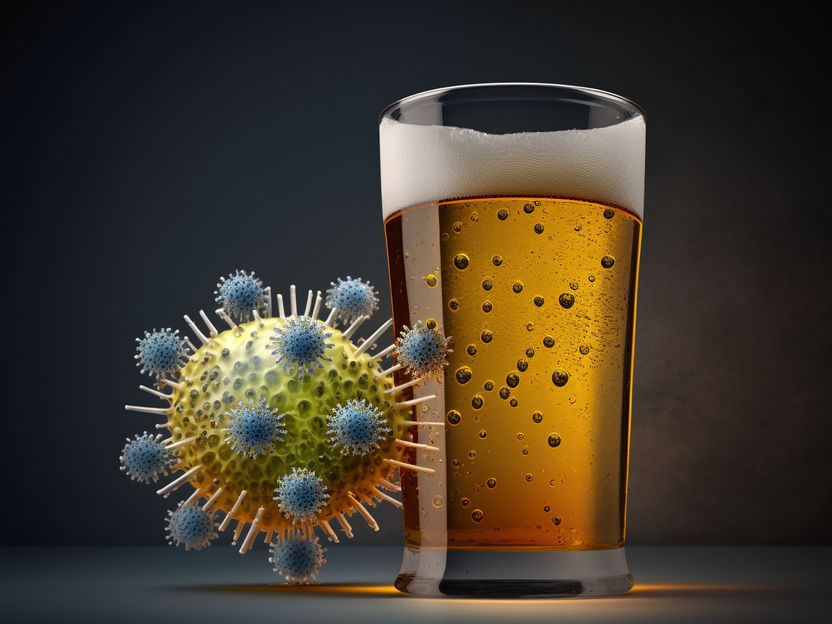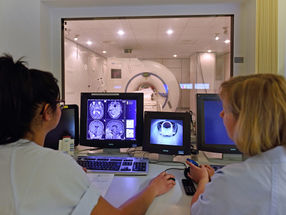Long-term alcohol use is a potential risk factor for covid 19 complications
Frequent alcohol consumption may lead to an increased risk of corona infection
Advertisement
Studies from animal models suggest that frequent alcohol consumption may lead to an increased risk of corona infection and present a potential for complications in disease progression.

Symbolic image
Computer-generated image
The corona pandemic has been a major challenge for many people. As a result, rates of mental illness have steadily increased and alcohol has become a commonly used means of escaping the worries of everyday life. Many risk factors, such as age and obesity, that contribute to infection and an unfavorable course of corona disease are known. However, the extent to which alcohol consumption has an impact on SARS-CoV2 coronavirus infection, or whether alcohol consumption also contributes to an unfavorable course of covid 19 disease, has not yet been elucidated. This gap in knowledge is surprising considering that 2.2 billion people consume alcohol on a regular basis.
Covid markers in long-term alcohol consumption
Researchers from the Institute of Psychopharmacology at the Central Institute of Mental Health (CIMH) in Mannheim/Germany have now addressed this question. In several animal models of long-term alcohol consumption and dependence, they investigated the expression of key covid markers in various organs considered as vulnerable to the disease and potential complications. Here, Prof. Rainer Spanagel's team found that the coronavirus entry receptor, ACE2, was elevated in the lungs of all animal models studied. “We interpret the results to mean that this increases the risk of corona infection through increased entry of the virus,” says Rainer Spanagel. The lung is considered a very susceptible organ for infection with SARS-CoV2. Thus, acute respiratory distress syndrome (ARDS) often occurs in cases of serious covid-19 disease. “So our work first indicates that frequent alcohol consumption can lead to an increased risk of corona infection and is a potential for complications in the course of the disease,” Spanagel says.
MAS gene reduction
Once cells are infected by coronavirus, a cascade is triggered that kills the virus in the cells. One of the initial factors for this cascade is MAS, a gene with anti-inflammatory effect, which is therefore a protective factor in relation to the corona disease. In the animals that consumed alcohol, the reduction of this gene was measured in a part of the brain responsible for smelling. A lower concentration of the MAS gene may lead to a reduced defense response in these cells, allowing the virus to continue to spread undisturbed. The researchers interpreted this reduction of the MAS gene in this brain region as potentially increasing susceptibility to ansomia – the loss of the ability to smell. Alcohol consumption could thus also be a risk factor for long-lasting olfactory loss in corona disease.
This study thus provides new evidence suggesting that alcohol consumption may have a potential effect on overall corona infection risk and favoring complications associated with the disease. Clarifying epidemiological studies in patients are urgently needed to further investigate the impact of these effects.


























































